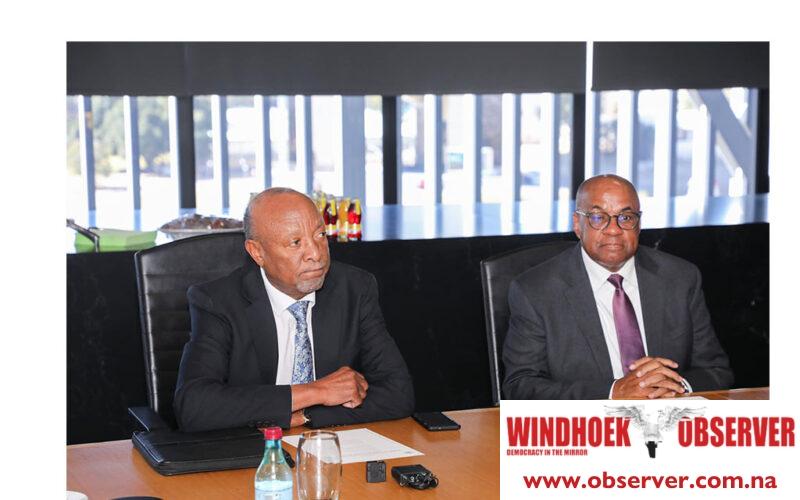Niël Terblanché
President Nangolo Mbumba has called for substantial reforms in Namibia’s banking sector to address the concerns of ordinary Namibians, particularly regarding the financing of entrepreneurial initiatives.
The President made the request during a meeting held at State House on Friday with the top management of all commercial banks in Namibia.
Mbumba pointed out the critical role that banks play in the country’s economic and monetary stability.
He stressed the need for banks to extend their mandates beyond traditional roles and actively foster entrepreneurship, drive innovation, and promote technological advancement.
Mbumba pointed out that high interest rates, excessive bank charges, and inadequate services are common complaints from the public, which is another aspect of banking that needs urgent attention.
“We have a stable banking system that underpins our economic and monetary stability, thanks to the key role played by bankers. However, we must ensure that our banking strategies align with the socio-economic context in which we operate,” Mbumba said.
He stressed the importance of banks becoming development partners that focus not only on profit but also on social inclusion and the mainstreaming of unbanked segments of society through innovative banking instruments like mobile banking.
The President urged banks to play a more proactive role in financing small and medium enterprises (SMEs) by finding ways to reduce collateral requirements and incorporating more equity-type instruments.
He also called on banks to treat their workers well and contribute to corporate social responsibility initiatives.
President Mbumba’s meeting comes at a time when Namibia is aiming to bolster its economic growth through various reforms and initiatives.
Additionally, Namibia’s banking sector has been under scrutiny following the country’s recent performance in the Universal Safety Oversight Audit Program Continuous Monitoring Approach, where it achieved a pass rate of 72.58%.
This audit assesses the effectiveness of safety and regulatory compliance in the aviation sector, indirectly influencing the overall financial environment.
The meeting at State House is part of Mbumba’s broader strategy to engage with various sectors to discuss mutual and national interests, ensuring that Namibia’s economic policies are inclusive and beneficial for all citizens.




